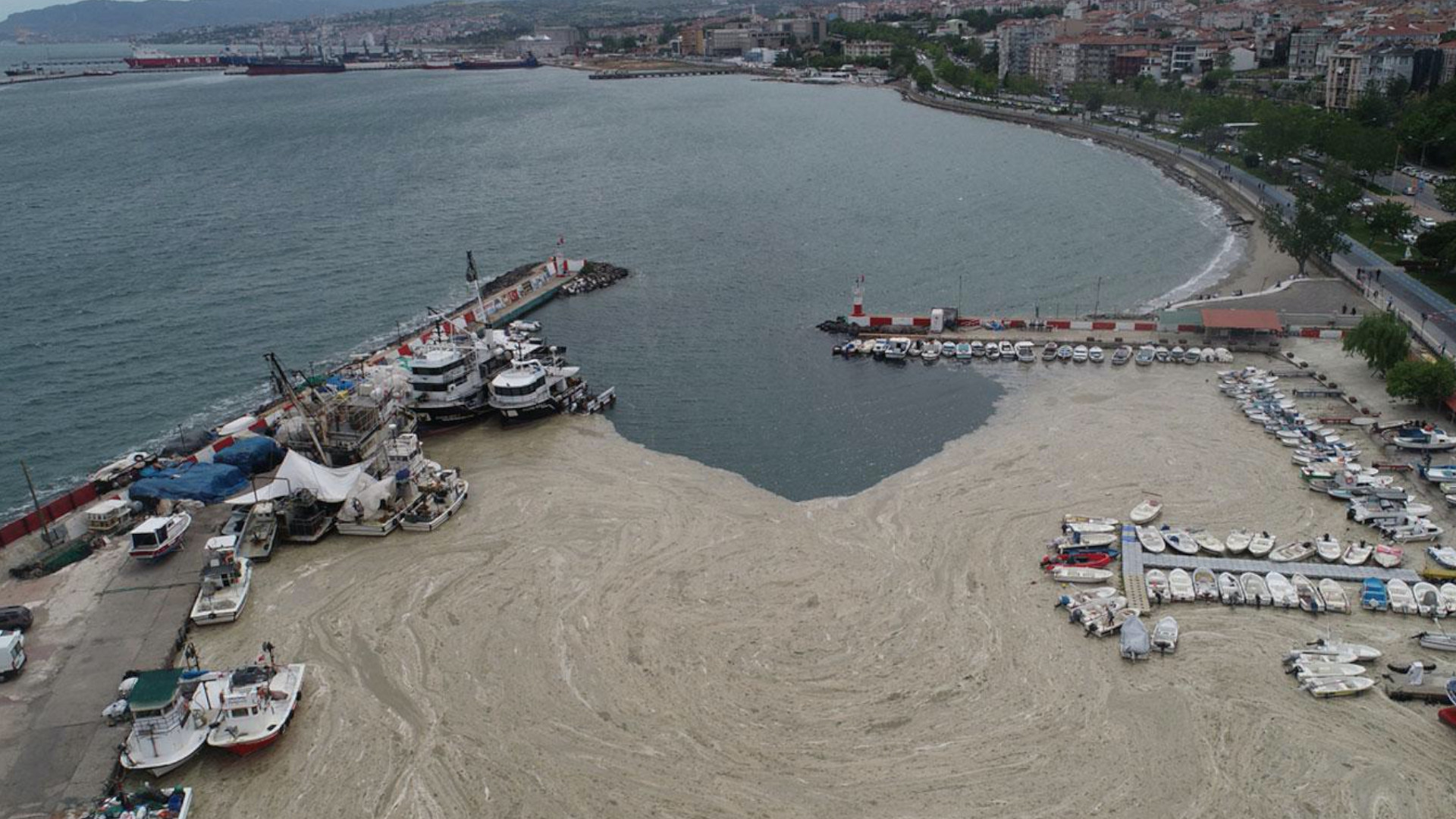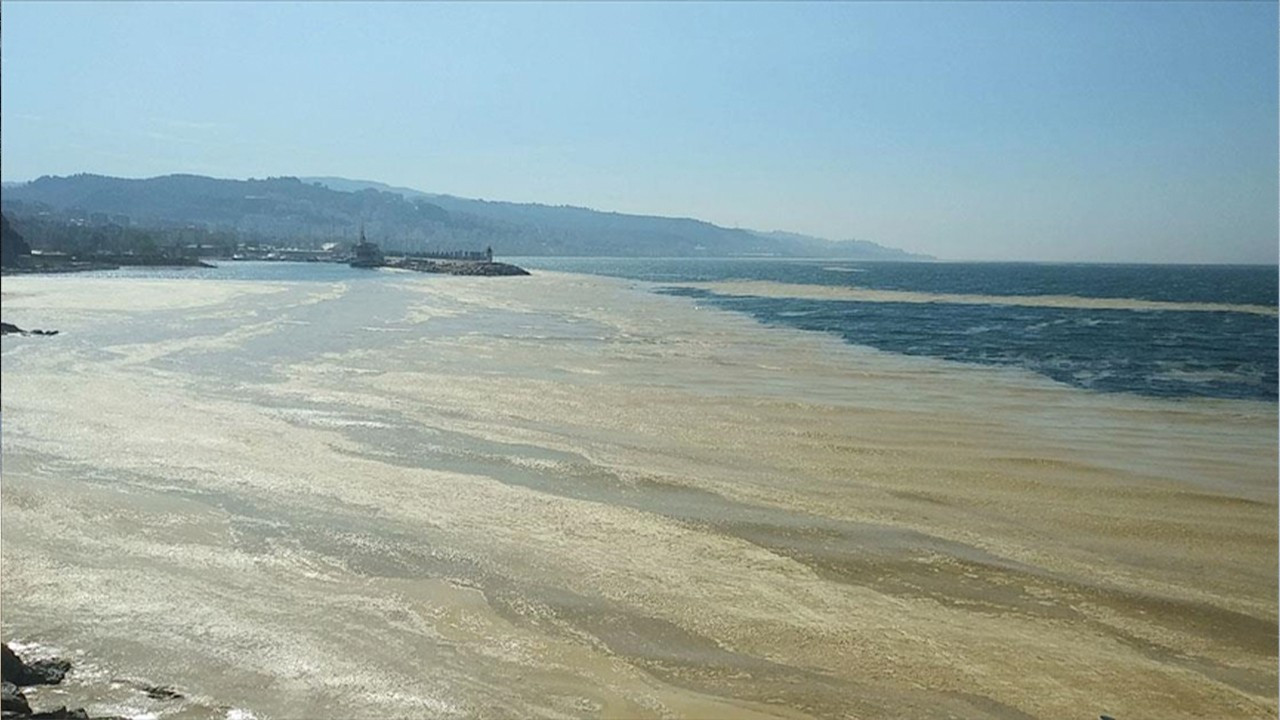CNN's underwater footage reveals mucilage suffocating Marmara Sea
A recent report by CNN International revealed the mass destruction caused under the surface of the Marmara Sea as a result of marine mucilage, also known as sea snot, caused by an overproduction of bacteria in the water. "It’s suffocating marine life to death. And it’s not going away," wrote CNN reporter Arwa Damon as a caption for the video on her social media.
Duvar English
A recent report by CNN revealed the death of sea life under the surface of the Marmara Sea as a result of the widespread marine mucilage, also known as "sea snot" that's taken hold of the body of water as a result of the over-reproduction of microalgae and an increase in the water temperature.
First observed in the area in 2007, mucilage has been observed in larger areas than ever before in the Marmara this year, concerning experts about not just the marine life and the environment, but also about the financial activity as part of tourism and fishing.
CNN reporter Arwa Damon dubbed the mucilage "an alien-like web of slime" and noted that it was choking off all forms of life in the water in the Dardanelles, the strait that connects Turkey's inland Marmara Sea to the Aegean.
"[Mucilage is] getting sucked into the gills of fish and wrapping itself around corals, suffocating them," Damon said.
Diving with the reporter is marine expert Prof. Barış Özalp, who points to a singular healthy coral sponge after multiple others who have died, although the health sponge is located right next to skeletons covered in slime, dead.
2021 has marked the first time in Prof. Özalp's decade-long dives in the Marmara when he's observed sea snot killing sea life, he said, adding that the local marine life was healthy and rich as recently as last summer.
'Dense organic soup'
Mucilage can be imagined as a "dense organic soup," Planktologist Prof. Muhammed Türkoğlu said, "mostly made up of bacteria and plankton's mucus secretions."
"The Marmara Sea is just like a coronavirus patient who's been intubated," Prof. Türkoğlu said, noting that oxygen levels in the depths are almost entirely depleted.
Sunken mucilage on the seafloor lowers oxygen levels as it decomposes, effectively creating "dead zones" in the water, Damon noted, adding that the planktons that create mucilage are in fact a vital part of the marine ecosystem, but that it's human activity that tipped off the scales in the Marmara.
Human pollution creates an excess supply of nutrients for the planktons in the water, which prompts over-reproduction of the microorganisms who then lead to mucilage, Damon added.
"Water temperatures in and around the Marmara have risen by two degrees in the past 50 years," Prof. Bayram Öztürk told the CNN, adding that the sea snot is an "environmental catastrophe."
The sea snot plaguing the Marmara is nature's way of spitting in our faces, Öztürk said.
Experts told CNN that they are concerned that the strength of the currents are not enough to dislodge the mucilage, and is not just a problem for Turkey, but instead a symptom of the lack of global leadership in preserving the planet's resources.

 Turkey’s seas are rotten, so is its political economyWorld
Turkey’s seas are rotten, so is its political economyWorld Istanbul faces cholera outbreak due to excessive 'sea snot'Environment
Istanbul faces cholera outbreak due to excessive 'sea snot'Environment